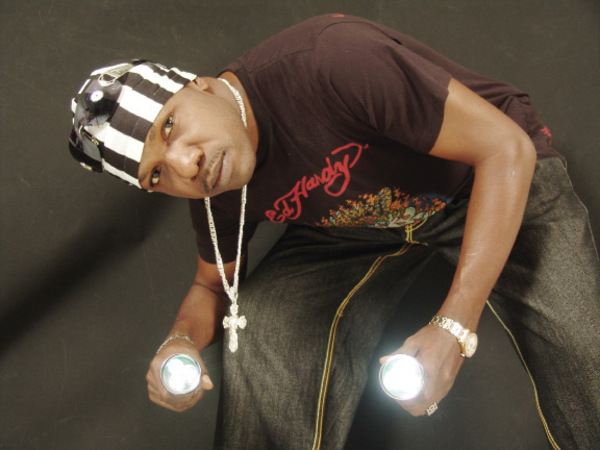Indigenous rap, as a sub-genre of Nigerian hip-hop, is missing the last piece to make it a perfect cultural trifecta. If we can agree that Olamide, Reminisce and CDQ are descendants of Lord of Ajasa, and Phyno, Ozone and MC Loph (RIP) are descendants of Mr. Raw, then who amongst the current crop is Zaaki Azzay’s modern day successor?

Zaaki Azzay
For some reason, a lot critics don’t like to give Zaaki his just due, acting like somehow they can rewrite history and leave his immense contribution out of it, but there’s no doubt in my mind that the rapper’s iconic torch shone the light for others to see the way in which hip-hop can be blended with folk music to form a hybrid that isn’t in constant conflict with local customs.
Eedris Abdulkareem and Ice Prince deserve notable mentions here too, they infuse Hausa language and traditions into their music and fly the home team’s flag as high as they possibly can. But interestingly, at home those guys are seen to belong more to pop culture than to Arewa culture. Eedris, in the first place, is Dan Kano by birth not by blood, so that complicates his existence, while Ice Prince divides opinions – his music is too mainstream, his image too Western and the message too pan-Nigerian for a lot of core northerners to truly embrace him as “theirs”. Then there’s the lack of consistency, choosing to identify with Arewa as he sees fit.
On a much smaller scale, Morell has been repping consistently through the years too but technically, he isn’t a “rapper”. So on an even smaller scale, that leaves Bauchi’s own ClassiQ as the strongest candidate for the face of modern day Arewa hip-hop. ClassiQ is flanked by lesser known – but by no means lesser talented – names like Kheengz, Hafeez, Dr. Pure and Lord V but other than that, the Hausa rap talent pool is as shallow as Donald Trump’s policies on immigration, foreign affairs, the criminal justice system… and just about everything else.

ClassiQ and Morell
Nigerian society is largely conservative, so the more liberal and disruptive elements of hip-hop culture tend to clash head-on with our local culture, not just in the more conservative north but all over the country. However, hip-hop culture is youth culture and its music speaks their language more fluently than any other – that’s where ClassiQ comes in. He, and his colleagues, have an interesting task and that’s to make Hausa-spoken rap that’s commercially-viable in Lagos and Abuja but also done in a way that their core audience – who wear New Era fitted caps as much as they do embroidered zanna bukar – can bop their heads to back home, and that’s not even the tricky part.
They also have to be sensitive enough to the cultural and religious nuances of the societies they grew up in and make sure that their music and imagery remains inoffensive to their parents and elder siblings. It’s an extremely delicate balancing act and I’ll argue that that’s the main reason why no one has truly been able to find Arewa hip-hop’s sweet spot, not even its pioneer Zaaki. It’s so ironic that, for a region that has given so much to Nigerian hip-hop by birthing meccas like Jos and Kaduna and being the launch pad for so many rap careers, Arewa hip-hop has found it difficult to thrive on its own. And this week, we were given a reminder as to one of the reasons why.
In an an embrace that happened on the set of a music video but was felt around the country, Rahama Sadau was expelled from Kannywood and banned for getting too touchy-feely with ClassiQ in his new video “I Love You”. The ban was placed on her by the Motion Picture Practitioners Association of Nigeria (MOPPAN), the body that Kannywood professionals belong to. MOPPAN’s chairman, Muhammadu Kabiru Maikaba, told the BBC Hausa service that the ban was “total”.
This is not the first time that she has been doing these wayward things. We have been warning her, but she still went ahead to dent our image
The original statement containing the ban was dated October 2 and signed by the Secretary of the association, Salisu Mohammed and it also also warned other actors and actresses to henceforth follow the rules binding their participation in the Kannywood film industry. Rahama has since apologized for her actions and ClassiQ has done his best to exonerate his lead model by shouldering all the blame.
……straight to the fans and friends!!! Thanks for your unwavering support. ?????? pic.twitter.com/ikwrk0w6yh
— Rahama Sadau (@Rahma_sadau) October 4, 2016
The ban hasn’t been lifted as of today but if you pay close attention, you’d see the religious undertone in the pronouncement. Kannywood has reportedly been under fire of late from conservative Muslim clerics who accuse it of “corrupting people’s values”, a sentiment that you can only understand if you’ve mixed it with deeply-religious Muslims. In the north, for instance, when I meet a lady who’s visibly dressed like a Muslim for the first time, I’m never sure exactly how to greet her. I often end up forcing a smile and bowing my head slightly, better that than being embarrassed by my right hand being left to hang. At that very moment, there’s a culture clash kindled by religion and ideology. In most other parts of the country, and with almost every other woman, I would have stretched out a hand without hesitation and that’s at the very least.
Perhaps that’s why it’s so difficult for many around the country to understand why a simple embrace is causing the largest fire in Kano since parts of Tudun Wada got burnt down. Lord knows I’m no Islamic scholar but my handshake has gotten snubbed enough times for me to do some research and find that, under strict interpretation, it isn’t permissible in Islam for two non-relatives of the opposite sex to share a hug, a kiss on the cheek or even a handshake. That’s the religious and ideological undertone of MOPPAN’s rebuke and it’s important that we isolate this from culture and tradition because even though Kannywood represents a region of the country’s entertainment space, not every northerner would necessarily be offended when they watch ClassiQ’s “I Love You” video.
But conservatives are not wrong and the liberals are not right. Religion must be respected, if two non-relatives cuddling is unacceptable and MOPPAN has imbibed this ideology into its practices, then so be it. That said, what we do not want is a double standard; when a woman hugging a man is met with greater outrage than a man hugging a woman, it is also unacceptable. This is an accusation that has been leveled against Kannywood and its governing body MOPPAN, actor Ali Nuhu in particular has come under intense scrutiny for scenes like these that have gone unpunished.
Ali nuhu wll hug n kiss in his films' shiru!@Rahma_sadau just do some romantic moves in a music video! Sacked!
Hypocrisy is killing us
— Mr Bukhari suwaid (@suwaidybaba) October 2, 2016
Rahma Sadau expelled from Kannywood after her loved up music video with ClassiQ. What of @alinuhu after kissing an actress on set?
— Abdulazeez (@Abdul5762) October 3, 2016
So , They Expelled @Rahma_sadau ?? What She Did Was Nothin Compared to Her Boss @alinuhu ? But Because she's a Woman They Expelled her Ok O
— Lolo ?? (@Aunty_Becccks) October 2, 2016
What’s good for the goose is (supposed to be) good for the gander but the problem is that MOPPAN seem to have far more gander than it does goose, so as long as only the gander enforce the rules, the gander will seldom fall short of them. What do I mean? I mean that MOPPAN is an organization where women are poorly represented at the leadership level, with only 2 out of 30+ members as recently as 2010. That list was modified the following year, when the executives were dissolved and no women were added. A new list hasn’t been made available since then, we reached out to MOPPAN for a revised list but they weren’t forthcoming.
If MOPPAN had a more gender diverse leadership, I wonder if a woman would have been the first scapegoat for its moral stand, I wonder if the judgment would have been so swift and unanimous and arrived at after only a few days and in the actor’s absence, I wonder if the penalty would have been so severe, I wonder if Kannywood would have been expending so much energy in trying to end the career of one of its brightest daughters, I wonder if MOPPAN’s moral watchlist would include other social vices that mothers – who see the effect entertainment has on their children first-hand – also care about like drug abuse, pre-adolescent marriage and gender inequality and lastly, if more women were represented in the leadership at MOPPAN, I wonder if they’ll have been given a chance to be heard to begin with. Such is the level of sexism that screams at you when you hear this judgment and unlike religion and ideology, it’s not even an undertone, it’s as conspicuous as Kemi Adeoseun’s British accent every time she opens her mouth. And that’s a damn shame.
By banning Rahama to serve as a “deterrent”, MOPPAN is working under the premise that life imitates art and society will imitate what they see on screen. That assumption is fine but MOPPAN overlooked the fact that art also imitates life, so to denounce a work of art doesn’t mean it stops being a part of people’s lives, because it’s a part of people’s lives already and that’s exactly why the artists were bold enough to represented it as art!

ClassiQ and Rahama
“I love you” could yet become a seminal moment for Arewa hip-hop, the song and its video celebrate love in ways that may not be appropriate for everyone but it’s a reflection of what young people do, denouncing it and banning Rahama won’t make young people stop being young people. If anything, it drives a further wedge between them and a society that hip-hop, by design, challenges and encourages them to disrupt and rebel against time after time after time.


